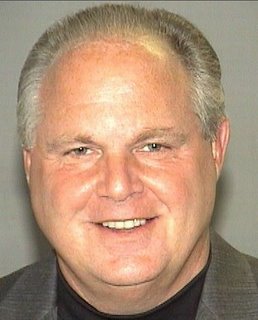Sanctions against Iran
April 17, 2006
As the drumbeat for military action against Iran grows louder, some members of Congress are calling to expand the longstanding U.S. trade ban that bars American companies from investing in that nation. In fact, many war hawks in Washington are pushing for a comprehensive international embargo against Iran. The international response has been lukewarm, however, because the world needs Iranian oil. But we cannot underestimate the irrational, almost manic desire of some neoconservatives to attack Iran one way or another, even if it means crippling a major source of oil and destabilizing the worldwide economy.
Make no mistake about it: Economic sanctions are acts of aggression. Sanctions increase poverty and misery among the very poorest inhabitants of targeted nations, and they breed tremendous resentment against those imposing them. But they rarely hurt the political and economic elites responsible for angering American leaders in the first place.
In fact, few government policies are as destructive to our economy as the embargo.
While embargoes sound like strong, punitive action, in reality they represent a failed policy that four decades of experience prove doesn't work. Conversely, economic engagement is perhaps the single most effective tool in tearing down dictatorships and spreading the message of liberty.
It is important to note that economic engagement is not the same thing as foreign aid. Foreign aid, which should be abolished immediately, involves the US government spending American tax dollars to prop up other nations.
Embargoes only hurt the innocent of a targeted country. While it may be difficult for the leader of an embargoed nation to get a box of American-grown rice, he will get it one way or another. For the poor peasant in the remote section of his country, however, the food will be unavailable.
It is difficult to understand how denying access to food, medicine, and other products benefits anyone. Embargo advocates claim that denying people access to our products somehow creates opposition to the despised leader. The reality, though, is that hostilities are more firmly directed at America.
Father Robert Sirico, a Paulist priest, wrote in the Wall Street Journal that trade relations "strengthen people's loyalties to each other and weaken government power." To imagine that we somehow can spread the message of liberty to an oppressed nation by denying them access to our people and the bounty of our prosperity is contorted at best.
For more than thirty years we have embargoed Cuba in an attempt to drive Fidel Castro from power. Yet he remains in power. By contrast look at the Soviet Union, a nation we allowed our producers to engage economically. Of course the Soviet Union has collapsed.
Embargoes greatly harm our citizens. As the American agricultural industry continues to develop new technology to reduce costs and increase yields, it becomes more important for farmers and ranchers to find markets outside the United States to sell their goods so they can make ends meet. By preventing our farmers and ranchers from competing in the world market, we deny them very profitable opportunities.
Government meddling is always destructive to the free market; people inevitably will make wiser decisions about how to spend their money, with whom, and when, than politicians in Washington. Embargoes simply do not accomplish the ends advocates claim to desire, and are extremely harmful to the well-being of Americans.
Ron Paul






















